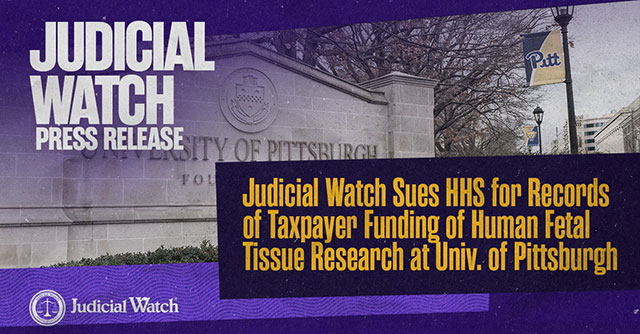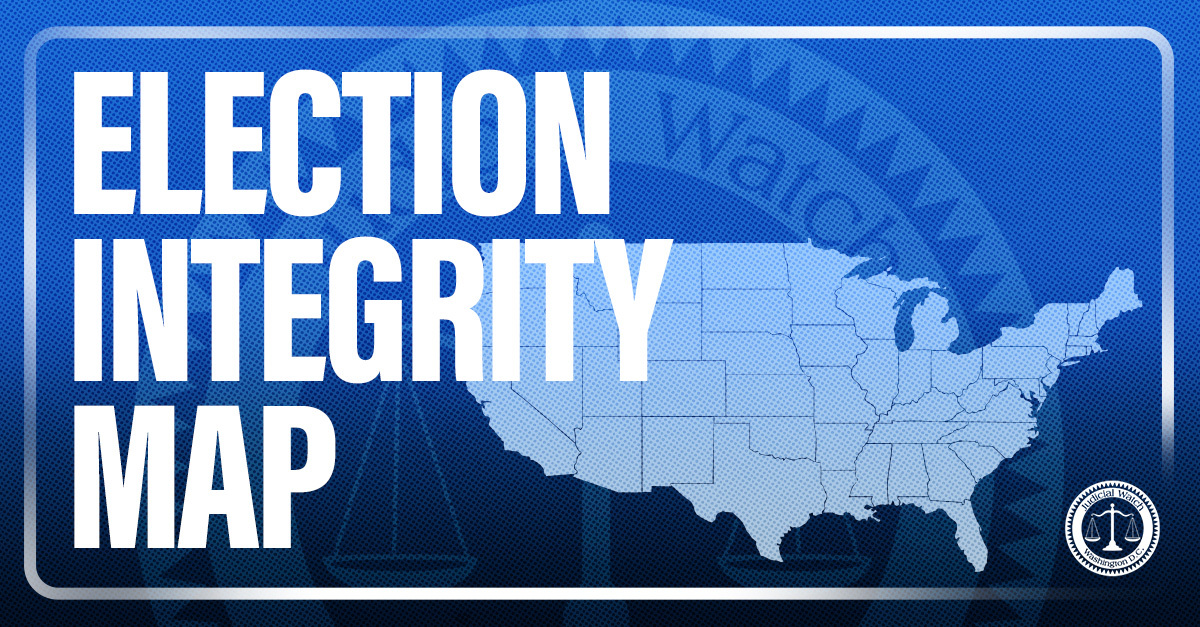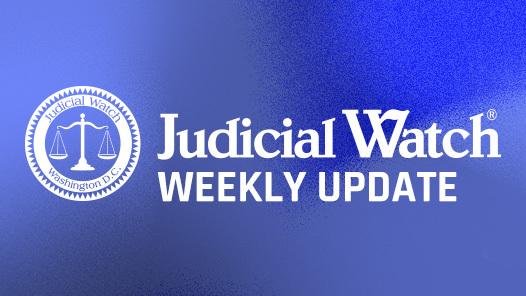
JW Files SCOTUS Amicus Brief, Argues against Subsidies for Federal Health Exchange Enrollees
(Washington, DC) – Judicial Watch announced today that on December 24, 2014, it filed an amicus curiae brief in support of the plaintiffs in a lawsuit against the IRS and the Departments of Health and Human Services (HHS) and Treasury over a decision by the agencies to ignore a key provision of the Affordable Care Act (ACA). The lawsuit seeks specifically to prevent the IRS from providing refundable tax credits to individuals who purchase health care coverage through a federal rather than a state exchange. The amicus brief was filed in the Supreme Court of the United States (David King, et al. v. Sylvia Burwell, et al., (No. 14-114)). The plaintiffs are appealing a July ruling by U.S. Court of Appeals for the Fourth Circuit that found the broad Obamacare subsidies proper.
Under Section 36B of the ACA, tax subsidies are restricted to individuals who purchase health insurance “through an Exchange established by the State under 1311 of the Patient Protection and Affordable Care Act.” Similar wording occurs in eight other locations throughout the ACA. In establishing the regulations governing the tax subsidies, however, the Obama administration declared that the phrase “Exchange established by the State” refers to state exchanges, regional exchanges, subsidiary exchanges, and a federally-facilitated exchange.
In its brief, Judicial Watch argued that the decision by the Obama IRS to extending ACA tax credits to individuals purchasing health care through federal exchanges “does not harmonize with the clear purpose of Congress” and could jeopardize the balance of powers:
Petitioners request that the Court to reaffirm the basic principle that the Executive Branch cannot disregard federal statutes in favor of its own policy choices and reverse “the ruling of the U.S. Court of Appeals for the Fourth Circuit (“Fourth Circuit”) If the ruling were to stand, the constitutional system of separation of powers would be significantly altered.
Specifically, Judicial Watch argued In re Aiken County is an important 2013 decision from U.S. Court of Appeals for the District of Columbia that “raise[d] significant questions about the scope of the Executive’s authority to disregard federal statutes.” In that case, the lower court declared that “[u]nder Article II of the Constitution and relevant Supreme Court precedents, the President must follow statutory mandates so long as there is appropriated money available and the President has no constitutional objection to the statute.” The DC Circuit opinion raised fundamental constitutional concerns about allowing a president to ignore federal law:
It is no overstatement to say that our constitutional system of separation of powers would be significantly altered if we were to allow executive and independent agencies to disregard federal law…Our decision today rests on the constitutional authority of Congress and the respect that the Executive and the Judiciary properly owe to Congress…
Applying this constitutional analysis, Judicial Watch noted:
The Executive Branch simply seeks to replace Congress’ policy choice about who is eligible to receive refundable tax credits with its own. As will be addressed below, the plain language and express purpose of Section 36B make clear Congress’ policy choice. The Constitutional authority of Congress – as well as the respect that the Executive and Judicial Branches owe to Congress – demands that Congress’ policy choice prevails. Section 36B should be applied as written.
Citing the legal truism that “Congress speaks through the laws it enacts,” Judicial Watch noted that both the plain language and congressional purpose of the Obamacare law are “clear and unambiguous”:
Section 36B plainly states that only an individual who purchases health insurance coverage “through an Exchange established by the State under section 1311 of the [ACA]” is eligible to receive refundable tax credits … Yet, the IRS interpreted Section 36B more broadly … By expanding the availability of refundable tax credits beyond its statutory authority, the IRS “fail[ed] to respect the unambiguous textual limitations” of Section 36B …
Also because Congress generally cannot require states to implement federal laws … its policy decision to provide refundable tax credits only to individuals who purchase health insurance coverage through an Exchange established by one of the states was Congress’ attempt to strongly encourage states to establish Exchanges … Authorizing the receipt of refundable tax credits to individuals who purchase health insurance through an Exchange established by the federal government would not incentivize the states to create Exchanges. It may even encourage some of the States not to create an Exchange. The IRS Rule therefore directly contradicts Congress’ policy choice.
Section 36B provides all of the information needed to definitively answer the question of who is eligible to receive refundable tax credits. It specifically authorizes the receipt of refundable tax credits to individuals who purchase health insurance coverage through “Exchanges established by the State.” 26 U.S.C. § 36B(c)(2)(A)(i). The federal government is not a state, and an Exchange established by the federal government is not an Exchange established by a state. Congress spoke with “the precision necessary” to leave no doubt what it sought to accomplish, so any extension by the IRS [to provide tax credits to participants in federal exchanges] is a contradictory interpretation and is in excess of its authority.
On July 22, 2014, ironically the same day as the Fourth Circuit ruling in King, in Halbig v Burwell, a panel of the DC Court of Appeals ruled 2-1 against the Obama administration, ruling that within constitutional limits, “Congress is supreme in matters of policy.” But on September 4, the full DC Court of Appeals, which included several new appointees of President Obama, granted HHS Secretary Sylvia Burwell’s petition for a rehearing of the case en banc (in full). (Judicial Watch also filed an amicus brief in the Halbig litigation.) Oral arguments were originally scheduled for December 17, 2014, but on November 12 the DC Circuit Court canceled the arguments and ordered the case to be held in abeyance pending the Supreme Court’s decision in King v. Burwell.
If the Supreme Court rules against the Obama administration, an estimated 87 percent of individuals who enrolled through the Healthcare.gov website could lose their taxpayer-provided subsidies.
The Obama administration’s argument that Congress never intended to restrict subsidies to state-run Obamacare exchanges was undermined by Jonathan Gruber during a January 18, 2012, presentation at a conference sponsored by Noblis (a non-profit government contractor). Gruber is the controversial Massachusetts Institute of Technology economist and Obamacare architect. In what he termed an effort to “squeeze the states,” Gruber confirmed that if states did not set up their own exchanges, the federal government would not give their health care applicants income tax subsidies. Gruber told a questioner:
I think partly because they want to sort of squeeze the states to do it. I think what’s important to remember politically about this, is if you’re a state and you don’t set up an Exchange, that means your citizens don’t get their tax credits. But your citizens still pay the taxes that support this bill. So you’re essentially saying to your citizens, you’re going to pay all the taxes to help all the other states in the country. I hope that’s a blatant enough political reality that states will get their act together and realize there are billions of dollars at stake here in setting up these Exchanges, and that they’ll do it.
After Gruber’s remarks were widely publicized, U.S. District Court Judge Ronald A. White, citing Gruber’s remarks, also ruled against the Obama administration in Oklahoma v. Burwell. Jude White noted that the Obama administration’s legal position “leads us down a path toward Alice’s Wonderland, where up is down and down is up, and words mean anything.”
“President Obama endeavors to be a despot, to rewrite the law unilaterally without bothering to go through Congress, as his oath to the Constitution requires,” said Judicial Watch President Tom Fitton. “Ironically, the Supreme Court must uphold Obamacare against this president’s attack upon it. And in upholding Obamacare, a law based on lies and economic fantasies, the Supreme Court may help hasten its legitimate end.”

















